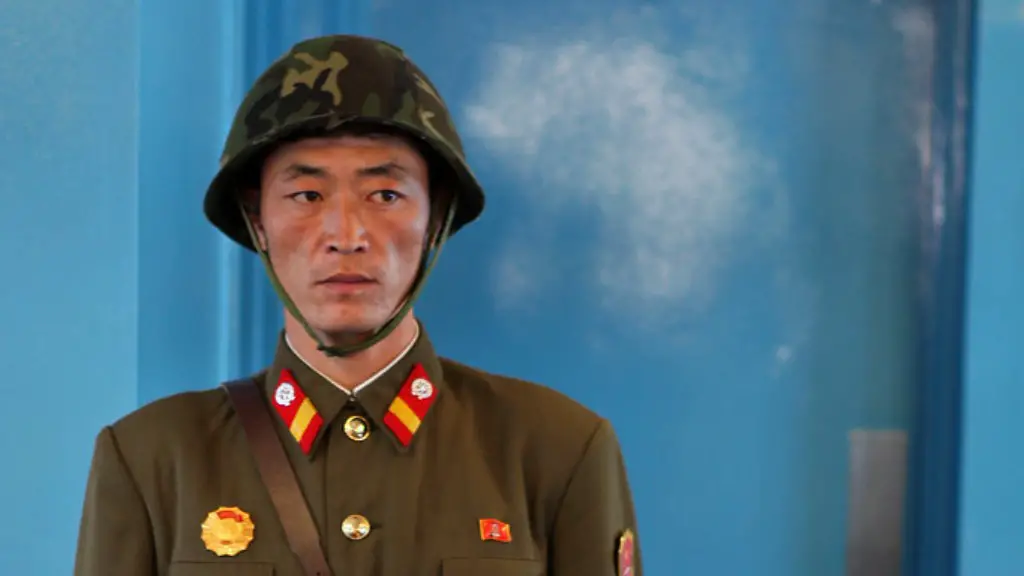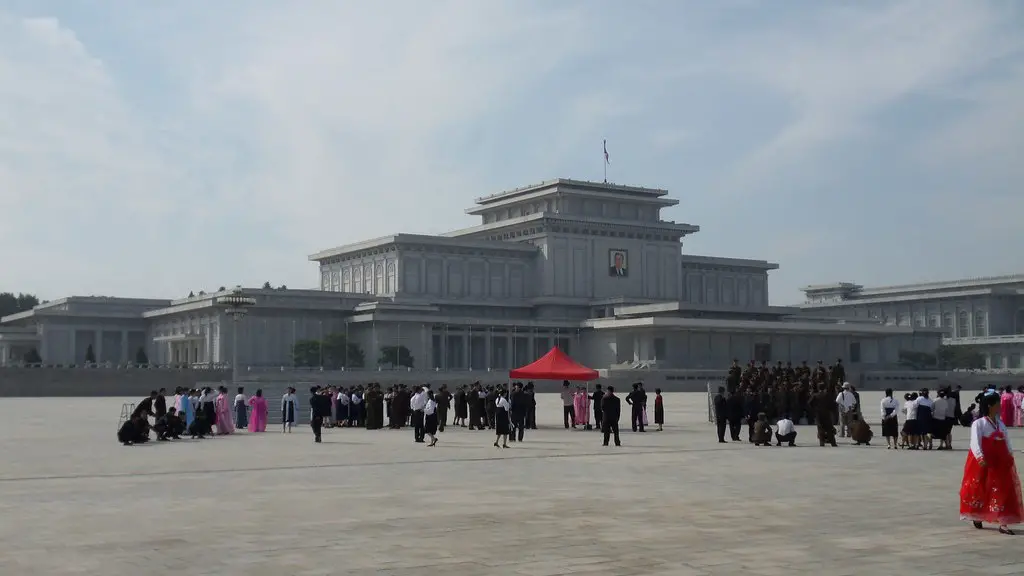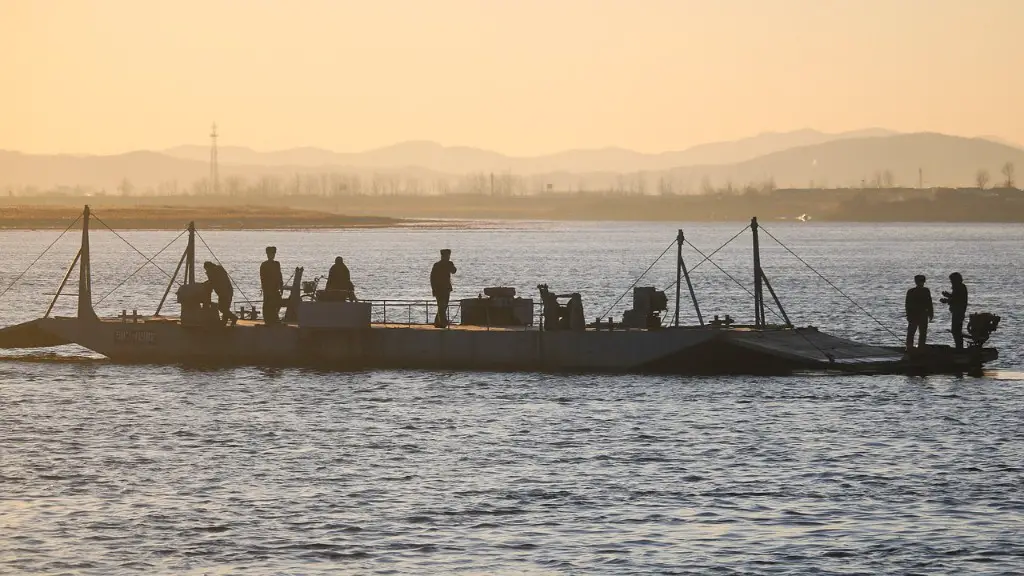The question of whether the US is ready for North Korea is a complex and multi-faceted one, with implications for US foreign policy, security, and economic stability that must be carefully considered. Though the two countries have had a volatile relationship since the 1950s, in recent years North Korea has taken steps towards improving relations with the US, raising the question of whether the US is adequately prepared to engage with North Korea in a constructive manner.
From a security standpoint, it is clear that the US is not yet prepared to handle a potential conflict with North Korea. Despite decades of research and investment, the US still has not managed to develop a reliable missile defense system that could effectively protect the US from North Korean nuclear weapons. In addition, the US has limited intelligence on North Korea’s militarily capabilities, making it difficult to form an accurate assessment of the threat posed by North Korea.
The economic implications of US-North Korean relations must also be taken into consideration. While North Korea’s economy is largely isolated from the rest of the world, its proximity to South Korea could make it an attractive investment opportunity for US investors. However, the sanctions imposed on North Korea by the US and other nations make it difficult for US companies to access North Korea’s markets remotely. Additionally, US companies could face significant risks from investing in North Korea due to the lack of legal protections for foreign investors.
Perhaps one of the most immediate issues the US is facing in terms of North Korea relations is the diplomatic divide between the two countries. Despite North Korea’s ongoing attempts to reach out to the US, the US has yet to reciprocate and continues to impose restrictive sanctions on North Korea. This impasse has made it difficult to open a meaningful dialogue between the two countries and could potentially lead to further tensions.
It is clear that the US is not yet fully prepared to engage with North Korea on multiple fronts. Even so, it may be necessary to take steps towards mitigating the risks posed by North Korea before US-North Korean relations can progress. This could include strengthening US missile defense capabilities, developing more comprehensive intelligence on North Korean military affairs, and engaging in more proactive diplomatic efforts. Only then can the US truly begin to assess whether it is ready for North Korea.
U.S. Strategies
As the US tries to engage with North Korea, there are a few strategies it may employ that could yield successful results. Firstly, the US could attempt to pursue diplomatic avenues as a way to achieve de-escalating tensions and better comprehend North Korean intentions. Negotiated arrangements and agreements may be possible if the US is willing to articulate its demands and negotiate compromises.
The US could also consider a more conciliatory approach towards North Korea. This could include lifting some of the restrictive sanctions that have been put in place over the years in exchange for North Korea eliminating certain elements of its nuclear program. Doing so would improve both sides’ political and economic prospects and might serve as a catalyst for further negotiations.
Finally, the US could seek to use its regional alliances as a way to exert pressure on North Korea to pursue more open diplomacy. This could involve encouraging its allies to reduce economic and military support for North Korea in order to force Pyongyang to the negotiating table.
Political Obstacles
One of the most significant obstacles the US faces in its dealings with North Korea is the current political climate. With a highly partisan Congress, some have argued that it would be difficult to pass legislation that would enable the US to take a more aggressive stance towards North Korea. Without congressional approval, the US would be limited in its ability to deploy troops or impose additional sanctions against North Korea.
Furthermore, some have argued that many of the current members of the Trump administration are not yet prepared to confront the complexities of US-North Korea relations. There is also the question of whether President Trump’s personal relationship with North Korean leader Kim Jong Un will be beneficial or detrimental to US-North Korea relations.
Another issue that must be addressed is the US’s relationship with its traditional allies in the region. In the past, the US has used Japan and South Korea as a way to pressure North Korea to the negotiating table. However, with the recent election of South Korea’s progressive president and Japan’s hard-line stance towards North Korea, it is unclear whether the US’s allies are currently on board with its current approach.
Economic Implications
The economic implications of US- North Korea relations must also be taken into consideration. North Korea’s economy is largely isolated from the rest of the world and its outward facing industries are relatively limited. However, the country’s proximity to South Korea and its potential natural resources could make it an attractive investment opportunity for US companies.
Any economic activities involving US companies operating in North Korea will likely be subject to strict US sanctions and there are no legal protections for foreign investors. US companies should also be aware of the potential for corruption, as the country’s government is highly authoritarian and there is limited oversight over business operations.
The US government could also be unwilling to provide economic aid or assistance to North Korea if it does not make progress towards denuclearization. This could include US-backed development projects that could help to improve the country’s economic prospects. Without economic assistance, North Korea may be unable to pursue economic reforms that could make it more open to foreign investment.
Military Overview
From a military standpoint, it is clear that the US is not yet ready to handle a potential conflict with North Korea. Despite decades of research and investment, the US still has not managed to develop a reliable missile defense system that could effectively protect the US from North Korean nuclear weapons. In addition, the US has limited intelligence on North Korean’s military capabilities, making it difficult to form an accurate assessment of the threat posed by North Korea.
The US also has limited tools with which to retaliate in the event of a conflict. Its primary option would be to use air and naval assets to strike North Korea’s military and nuclear facilities, though doing so would present considerable risks. Additionally, US forces would be outmatched in terms of numbers, as North Korea has a much larger ground force than the US.
Finally, there is the issue of how the US would respond in the event of an armed conflict with North Korea. One option would be to use diplomacy to negotiate an end to the conflict, though the US would need to be careful in how it handles such negotiations. Alternatively, the US could employ a strategy of deterrence and containment, using its presence in the region to contain North Korea militarily without engaging in direct conflict.
International Support
In order for the US to reach a successful resolution with North Korea, it will need to rely on the support of its international partners. The US is currently a part of a number of international treaties and organizations that have taken steps to slow North Korea’s nuclear and military ambitions, including the United Nations Security Council and the Six Party Talks.
These organizations and treaties have implemented restrictive sanctions on North Korea and are placing pressure on the country to comply with international law. Additionally, US allies in the region, such as South Korea and Japan, have coordinated military drills and joint exercises in order to signal their commitment to the US’s strategy towards North Korea.
In order for the US to be successful in its dealings with North Korea, it must enlist the help of its international allies. Doing so would signal to North Korea that the US is serious about countering the country’s aggression and could help to facilitate productive negotiations.
Cultural Awareness
One of the most important elements of an effective US-North Korea strategy is cultural awareness. The US must be mindful of North Korea’s history and culture in order to ensure that any agreements it reaches with North Korea will be respected and followed through on. It is also important for the US to understand the dynamics between North and South Korea, as the two countries have a long and complex history that must be taken into account if the US is to successfully engage with both sides.
Furthermore, the US must be aware of North Korea’s internal politics. North Korea is a authoritarian regime that is highly sensitive to outside influence and it is important for the US to respect the country’s sovereignty while also engaging in discussion on a government-to-government level. Demonstrating a willingness to understand North Korea’s interests and perspectives could help to build trust between the two countries and help to facilitate successful negotiations.
Finally, the US must be willing to take North Korean public opinion into account. Many North Korean citizens have grown weary of their government’s aggressive foreign policy and are eager for engagement with the US. Demonstrating a willingness to hear their opinions could help to build support for the US’s policies, making it easier to reach agreements that benefit all involved.





